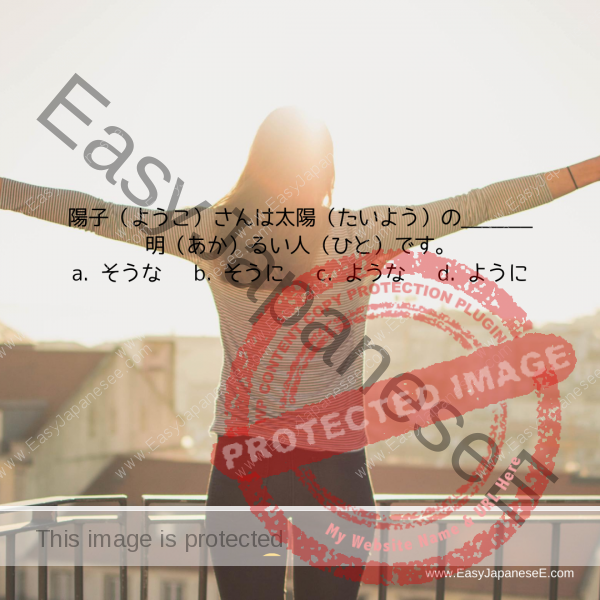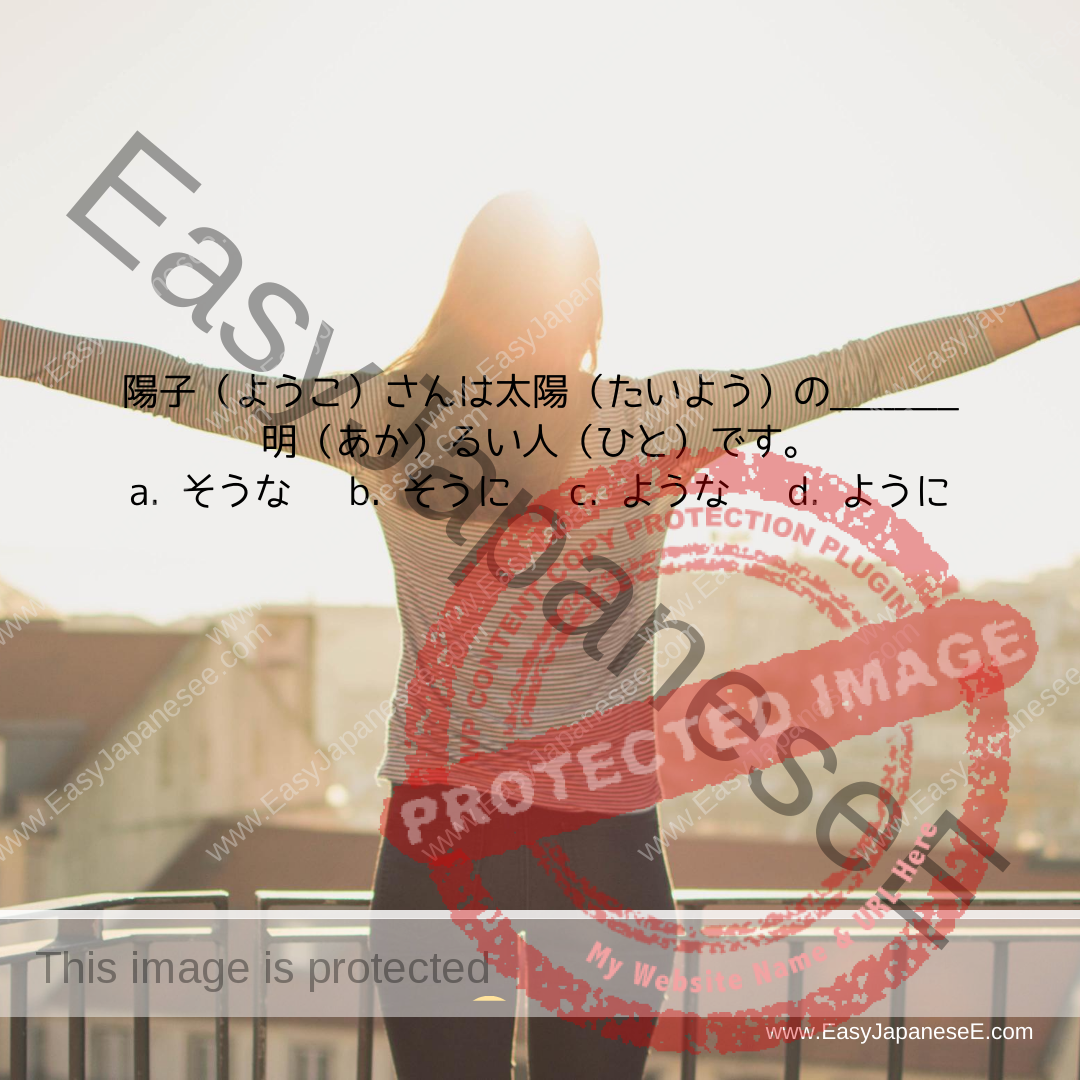
陽子さんは太陽の( )明るい人です。
a. そうな b. そうに c. ような d. ように
The intended meaning is: Yoko is a bright person like the sun. そう has the meaning of “that way” but not quite “like” while よう has that meaning. Then the question here is: Is “たいようのよう (like the sun) explaining (= modifying) あかるい (bright, an adjective) or ひと (a person, a noun)?
If it is modifying a noun, we should use ような (adjectival) and if it is modifying anything other than a noun, we should use ように (adverbial). Which do you think?
Either is fine in this case.
陽子さんは太陽のような明るい人です。
Yoko is such a bright person like the sun.
陽子さんは太陽のように明るい人です。
Yoko is a person as bright as the sun.
Let’s have a look at more examples. Underline shows what is modified by ような/ように.
今日は山のような宿題がある。
今日は山のように宿題がある。
I have heaps of homework like a mountain.今日は春のような天気だ。
It’s spring-like weather today.
今日は春のように天気がいい。
Today’s weather is fine like spring.天使のような赤ん坊が生まれた。
A baby like an angel was born.この学校は病院のような建物ですね。
This school building is like that of a hospital.筆はこのように持ちます。
Hold a brush like this.クリケットのバットを野球のバットのように振ってはいけません。
You must not swing a cricket bat like that for baseball.
For more study material for JLPT N4 exam, please visit JLPT N4 Grammar and Vocab and JLPT N4 Kanji pages.

